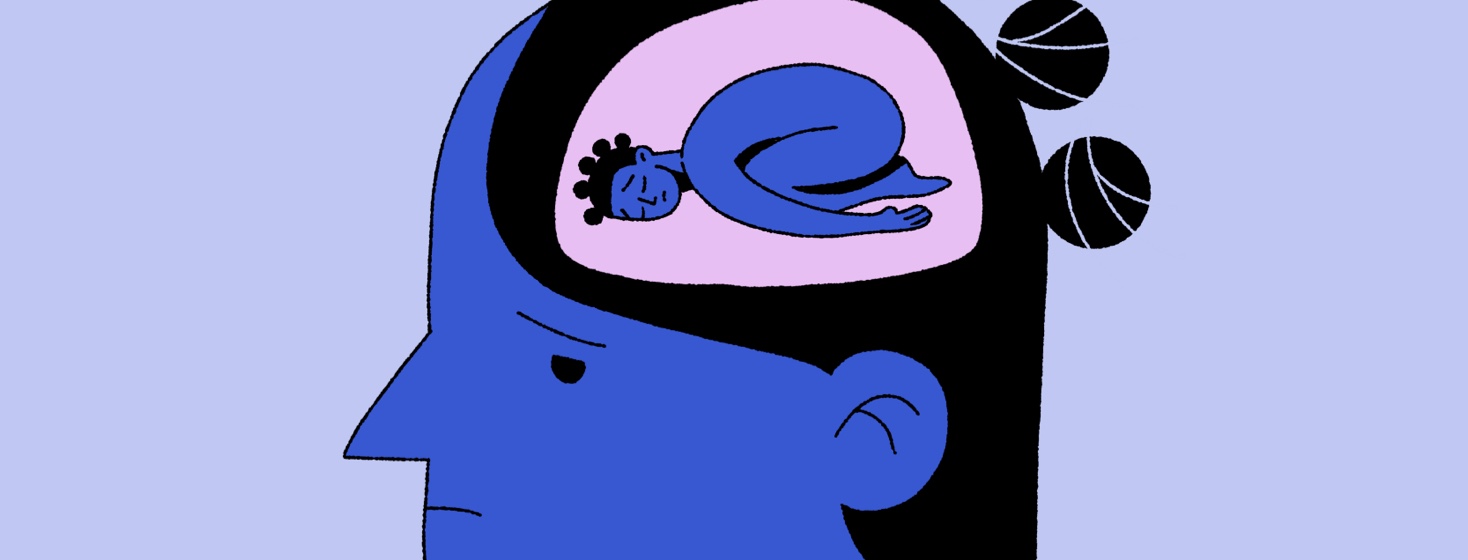What Is Helping Me Manage My PMDD?
I have written a lot about my PMDD, and I am so glad I did. While it took me ages to find a doctor willing to take me seriously, I received countless messages on social media from readers who believed they experienced it too.
PMDD is no big news, but as with anything classed under the "female health" category, it is under-researched. Yet many of us, seem to suffer from it.
What is PMDD?
PMDD stands for Pre-Menstrual Dysphoric Disorder1 and is a severe form of the commonly known premenstrual syndrome (PMS). PMS comprises a series of emotional and physical symptoms that can happen monthly, one to two weeks before a period.
In the case of PMDD, these symptoms become more severe. PMDD generally occurs right after ovulation and can last until a period begins.
This timeframe is called the luteal phase of a menstrual cycle. Symptoms of PMDD include mood swings, lack of energy, feeling irritability, and suicidal thoughts, amongst others.
Anxiety can also occur, sleeping issues and even migraines. In my case, my mood would drop so profoundly, I’d become extremely depressed, and unable to focus on anything.
My brain fog would be so severe I’d sometimes struggle to talk. Heartbreakingly, I’d hate myself so much I’d often experience suicidal ideation.
Mental toll of PMDD
Whenever I felt anger and irritability, I would only direct it at myself, finding no solace. I spoke to doctors about it, but they would either suggest a general antidepressant or tell me to go on the pill.
My experience with anti-depressants had never been good. With regards to hormonal help, the pills I had tried, caused me to sink further into depression.
Yet today, after years of suffering, I feel so much better. My luteal phase is rather peaceful, albeit slightly emotional.
But it is non-disruptive, and easily managed with some chocolate and a nap. So, what has worked for me?
Finding the right anti-depressant
I was prescribed Duloxetine a year ago, mostly to relieve fibromyalgia symptoms. While it took me a good long month to get used to some side effects, once it all settled, I found myself forgetting about my long-term PMDD.
The mood swings disappeared.
Talking to a professional helped
The days before my period would bring feelings of unworthiness and isolation. Talking about my symptoms during therapy helped me realize that PMDD is not my personality, but something outside of my own identity.
It is a chemical imbalance that does not define who I am. Looking at it in this way meant it was something I could attempt treating.
Additionally, meditation, whether practiced at home, or during a meditative walk, has helped me become aware of my body’s changes during certain phases of my cycle. This has enabled me to isolate any upsetting symptoms and place them in the PMDD box.
Again, this reinforces the idea that these issues are not who I am.
Reduction of periods gave me some relief
This has been achieved thanks to the right hormonal medication that worked for me. I take a dosage that does not completely eliminate my periods but minimizes them.
While I will feel emotional during certain days of the month, the lows are much less manageable.
Improving sleeping habits
This has taken me a long while to achieve, but it's been worthwhile. After realizing that I am one of those people that need to sleep between 8 to 9 hours to feel rested, I go to bed quite early most nights.
I stop looking at my phone for at least 45 minutes before I head to bed, using the ‘sleep schedule” setting. Rest has done wonders for my health overall.
When it comes to my mental health, being rested means I don't "crash". During the days before my period, my fatigue increases, and sleeping whenever my body needs it feels like the most natural, and rewarding thing to do.
PMDD continues to be poorly understood, yet, just because it is so, does not mean there is no hope. I don't know what will happen if I come off any of the medications I'm currently on.
Yet, for the time being, it's working for me.
I used to believe that PMDD was an unchangeable part of my identity. I am so relieved to know it is not.

Join the conversation